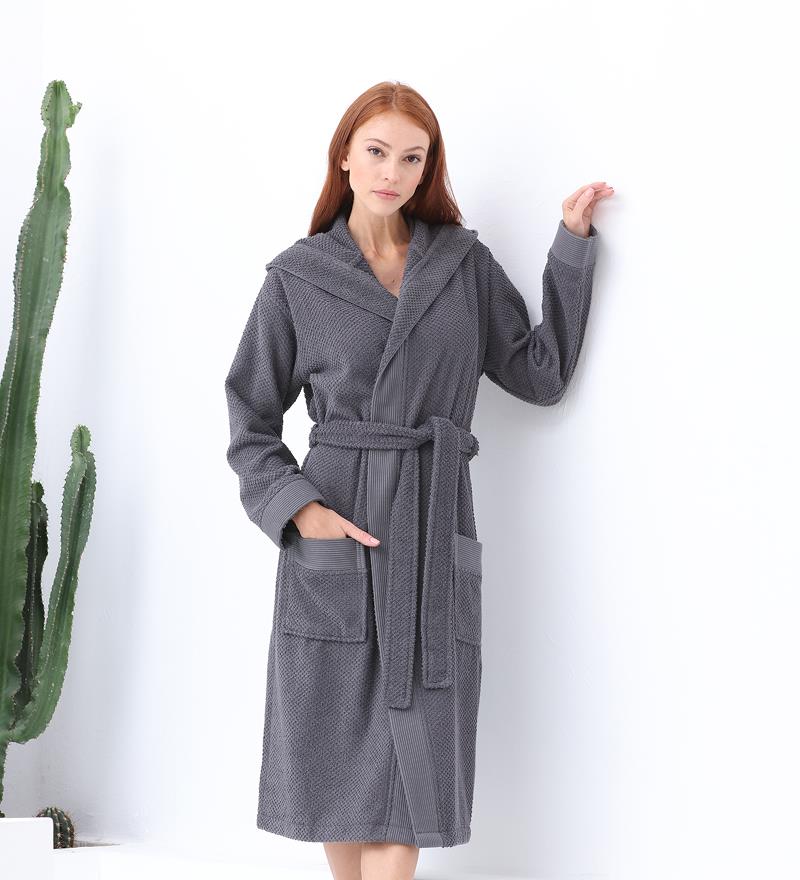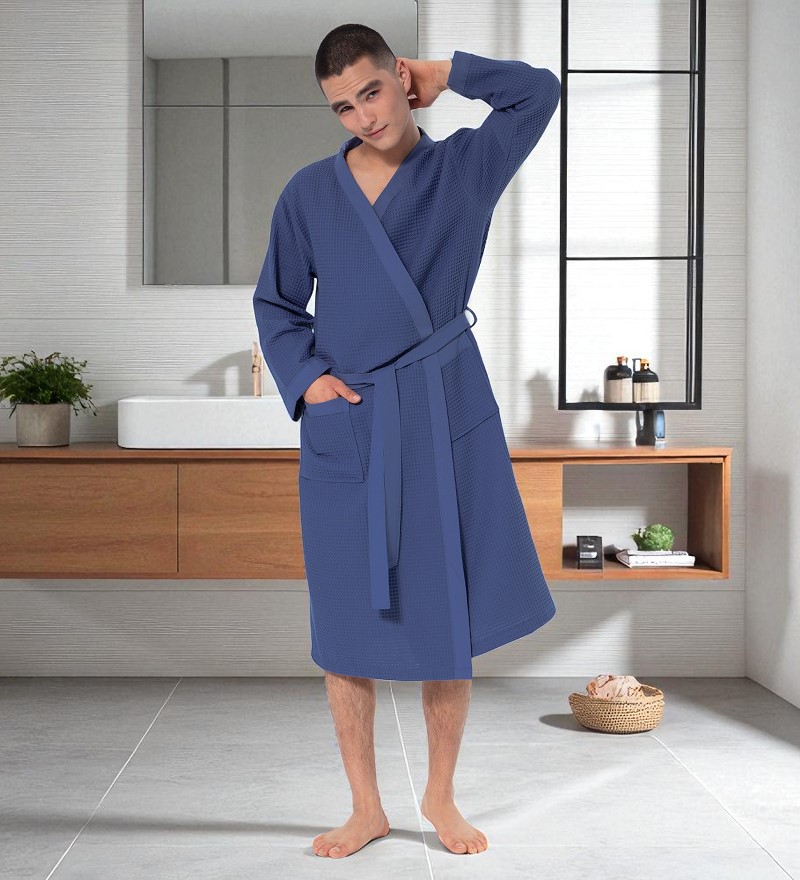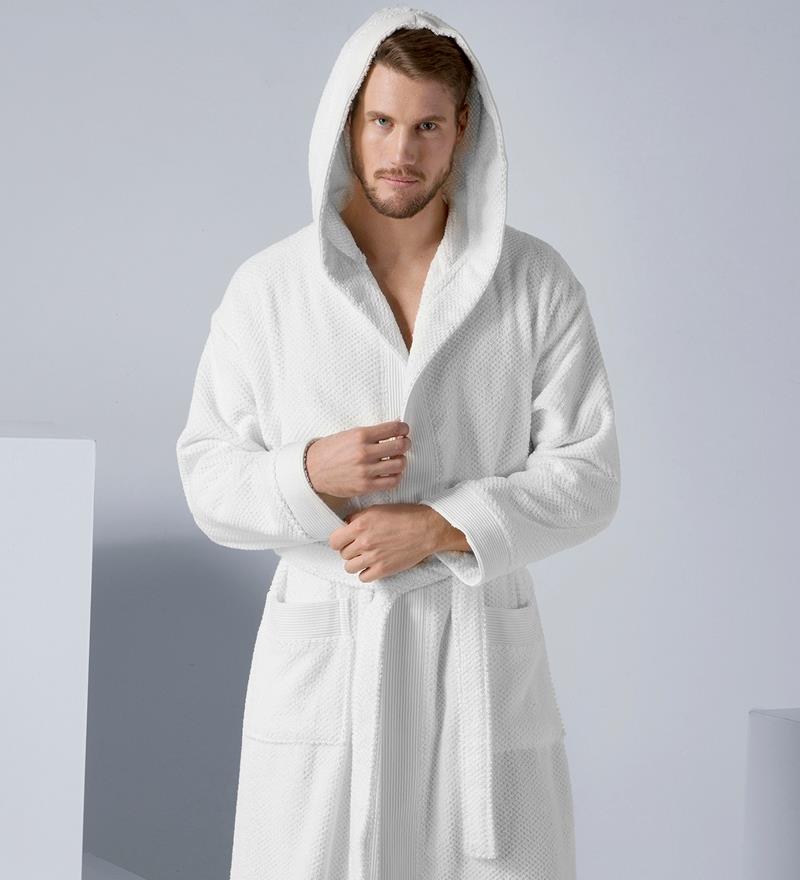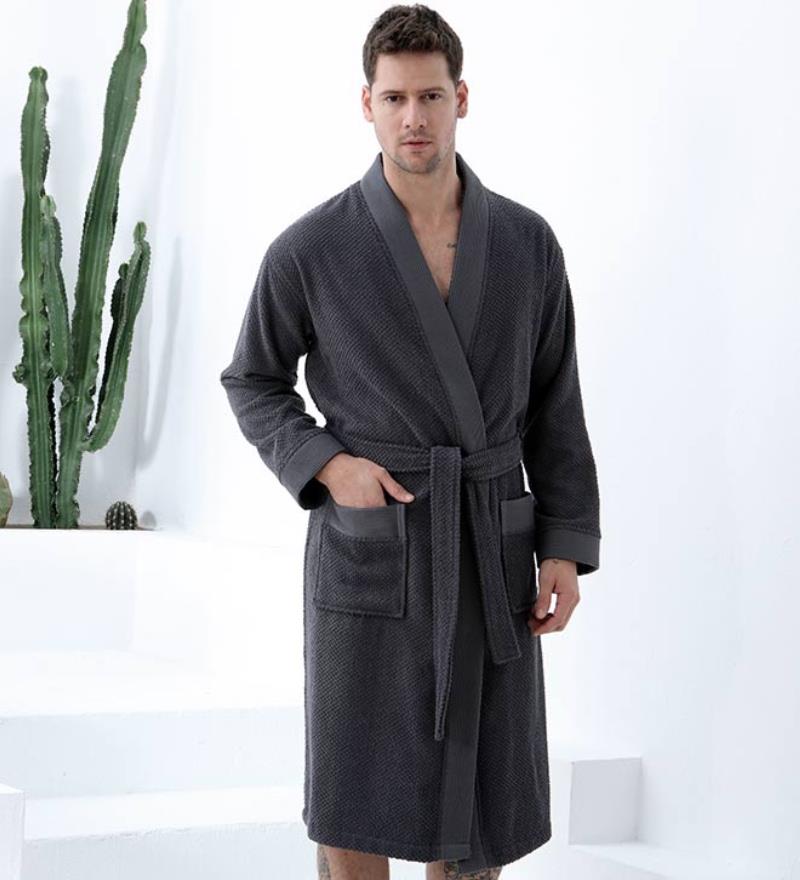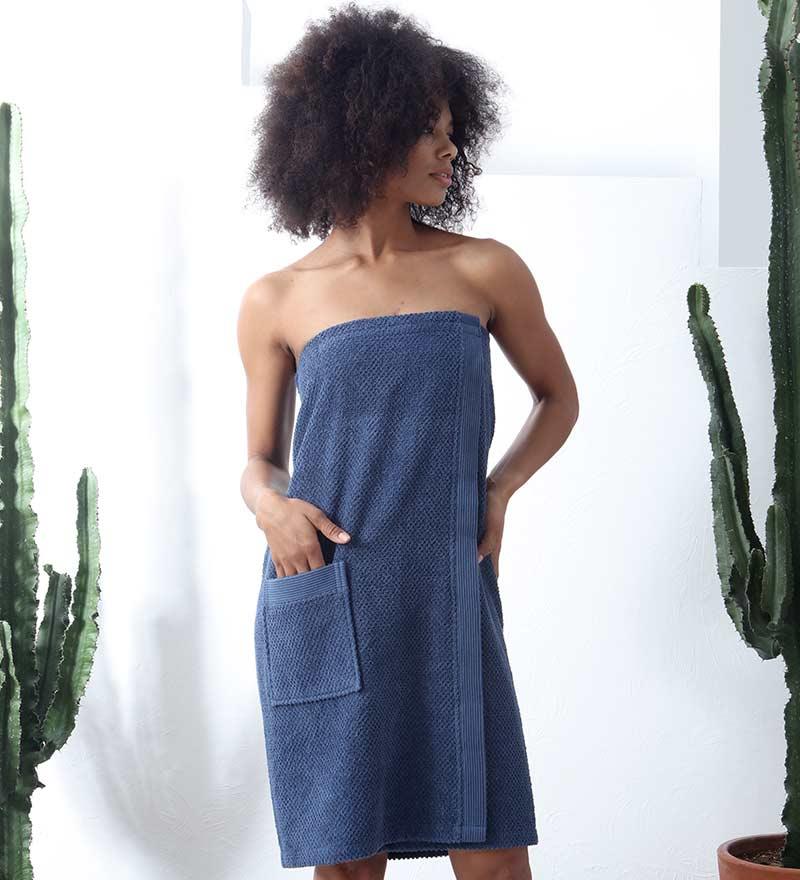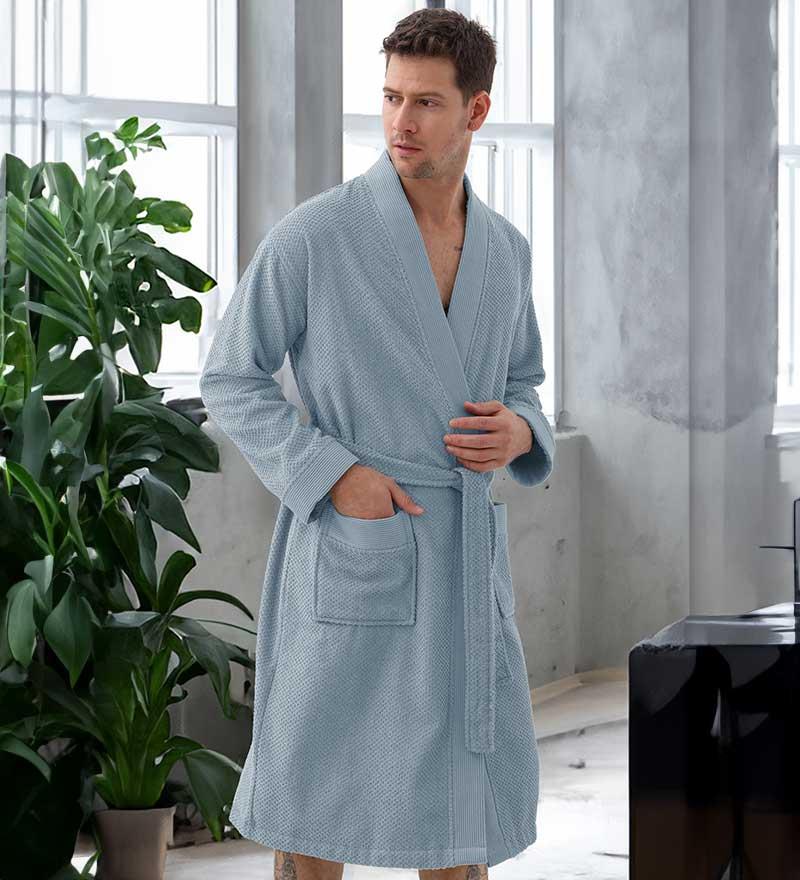- Waffle Robes
- Terry Cloth Robes
- Microfiber Robes
- Turkish Cotton Robes
- Towel Robes
- View All Robes by Material
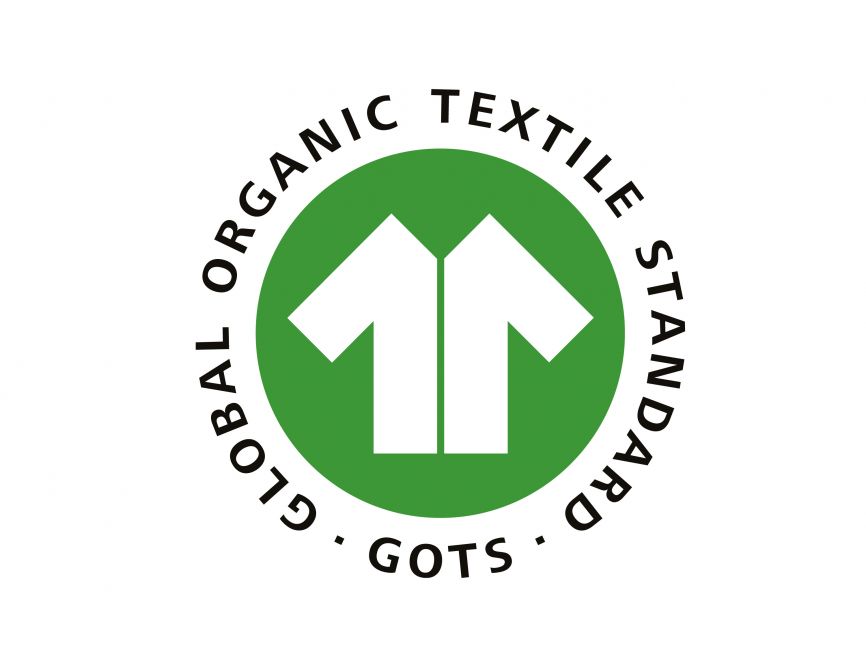
Understanding GOTS: The Gold Standard in Organic Textiles
At SEYANTE, we pride ourselves on offering high-quality bathrobes for both women and men, crafted with utmost attention to detail and sustainability. Our commitment to excellence is reflected in our use of the Global Organic Textile Standard (GOTS) certification for our products. GOTS is a benchmark for organic textiles, ensuring environmentally friendly and socially responsible manufacturing processes. In this blog post, we'll delve into what GOTS is, why it matters, and how our GOTS-certified bathrobes can benefit you.
In this blog:
- What is GOTS?
- The Significance of GOTS Certification
- Criteria for GOTS Certification
- Benefits of GOTS Certification for Consumers
- SEYANTE’s Commitment to GOTS Standards
- How to Identify GOTS-Certified Products
- GOTS vs. OEKO-TEX: Understanding the Differences
What is GOTS?
The Global Organic Textile Standard (GOTS) is the leading worldwide standard for organic fibers, including stringent ecological and social criteria. Established by four reputable organizations—the Organic Trade Association (USA), Internationaler Verband der Naturtextilwirtschaft (Germany), The Soil Association (UK), and Japan Organic Cotton Association—GOTS aims to harmonize organic textile standards globally. This certification ensures that products meet high levels of environmental and social responsibility from raw material harvesting to final labeling.
The Significance of GOTS Certification
GOTS certification represents a credible assurance of quality and sustainability. When you see a GOTS label, you can trust that the product is made from organic materials and processed in an environmentally and socially responsible manner. There are two levels of GOTS labels:
- GOTS Organic: Products must contain at least 95% certified organic fibers.
- GOTS Made with Organic: Products must contain at least 70% certified organic fibers.
The remaining percentage can include recycled or regenerated fibers, ensuring minimal environmental impact.
Criteria for GOTS Certification
GOTS certification involves rigorous criteria covering various aspects of production:
- Fiber Production: Organic fibers must be grown without toxic pesticides or GMOs, adhering to international organic farming standards.
- Processing and Manufacturing: Organic fibers must be clearly identified and separated from conventional fibers. Toxic chemicals, dyes, and heavy metals are prohibited, and environmentally friendly processes such as oxygen bleaching are mandated.
- Environmental Standards: Wet processing units must treat wastewater and manage sludge disposal properly to prevent environmental contamination.
- Social Criteria: Certified units must provide safe working conditions, fair wages, reasonable working hours, and prohibit child labor and discrimination.
These criteria ensure that every GOTS-certified product is safe for consumers, workers, and the environment.
Benefits of GOTS Certification for Consumers
Choosing GOTS-certified products offers numerous benefits:
- Health Benefits: Reduced exposure to harmful chemicals and allergens, promoting better health.
- Environmental Benefits: Protection of ecosystems, reduced water and chemical use, and support for sustainable farming practices.
- Ethical Benefits: Assurance of fair labor practices and ethical treatment of workers throughout the supply chain.
SEYANTE’s GOTS-certified bathrobes embody these benefits, offering you a luxurious, safe, and ethically produced product.
SEYANTE’s Commitment to GOTS Standards
At SEYANTE, our dedication to sustainability and ethical production is unwavering. Our bathrobes for both women and men are crafted from the finest GOTS-certified organic cotton. We ensure that every step of our production process, from raw material sourcing to final packaging, adheres to GOTS standards. This commitment guarantees that our products are not only luxurious and comfortable but also environmentally friendly and socially responsible.
How to Identify GOTS-Certified Products
To ensure you are purchasing genuine GOTS-certified products, look for the GOTS label on the product. This label will indicate the percentage of organic fibers used. SEYANTE’s bathrobes proudly display the GOTS label, reflecting our adherence to the highest standards of organic textile production. Checking the GOTS public database can also verify the authenticity of the certification.
GOTS vs. OEKO-TEX: Understanding the Differences
When it comes to ensuring the quality and safety of textiles, GOTS and OEKO-TEX are two of the most recognized certifications in the industry. While both certifications aim to promote safer and more sustainable textile production, they have distinct differences in their focus and criteria. Understanding these differences can help consumers make more informed choices about the products they purchase.
GOTS (Global Organic Textile Standard)
- Focus: GOTS is dedicated to organic fibers and sustainable textile production. It sets comprehensive criteria that cover environmental and social aspects throughout the entire supply chain.
- Criteria: GOTS certification requires that products contain a high percentage of organic fibers (at least 70% for the "Made with Organic" label and 95% for the "Organic" label). It strictly regulates the use of chemicals, ensuring that only environmentally friendly substances are used in processing and manufacturing. GOTS also includes rigorous social criteria, such as fair wages, safe working conditions, and the prohibition of child labor.
- Scope: GOTS covers the entire production process, from the harvesting of raw materials to the final labeling and packaging of the product. This ensures that every step adheres to high environmental and social standards.
- Benefits: Consumers choosing GOTS-certified products can be confident that they are buying textiles that are not only organic but also produced in an ethical and environmentally sustainable manner.
OEKO-TEX (International Association for Research and Testing in the Field of Textile and Leather Ecology)
- Focus: OEKO-TEX primarily focuses on the safety of textile products with regard to harmful substances. It ensures that textiles are free from harmful chemicals and safe for human use.
- Criteria: The most well-known OEKO-TEX certification is the Standard 100, which tests for harmful substances in textiles. This certification can apply to both organic and non-organic products. The criteria include testing for banned substances, chemicals harmful to health, and parameters for precautionary measures.
- Scope: OEKO-TEX certification applies to the finished product and its components, including threads, buttons, and zippers. While it ensures the safety of the final product, it does not necessarily cover the entire supply chain or the production process.
- Benefits: Products with OEKO-TEX certification guarantee that they have been tested for harmful substances and are safe for direct contact with skin, making them a good choice for those with sensitive skin or allergies.
Key Differences
- Focus Areas: GOTS emphasizes organic and sustainable production, covering both environmental and social criteria. OEKO-TEX focuses on the absence of harmful substances in the finished product.
- Scope of Certification: GOTS certification covers the entire supply chain from raw material to final product, while OEKO-TEX primarily certifies the safety of the finished product.
- Chemical Use: GOTS restricts the use of all harmful chemicals throughout production. OEKO-TEX ensures that the final product is free from harmful chemicals but does not regulate the entire production process.
- Social Responsibility: GOTS includes stringent social criteria, such as fair labor practices. OEKO-TEX does not specifically address social criteria.
GOTS certification is a mark of excellence, ensuring that textiles are produced with the highest standards of environmental and social responsibility. At SEYANTE, we are proud to offer GOTS-certified bathrobes, providing you with products that enhance your comfort and well-being while supporting sustainable and ethical practices. Choose SEYANTE’s GOTS-certified bathrobes for a better planet and a healthier lifestyle.
Related Posts
Trick or Treat Yourself: Spooky Season Self-Care in Style
- Self Care
- 8/5/2024 12:00:00 AM
Categories
Popular posts
Newsletter


Offering high-quality bathrobes for both women and men with GOTS certification
Our commitment to excellence is reflected in our use of the Global Organic Textile Standard (GOTS) certification for our products. GOTS is a benchmark for organic textiles, ensuring environmentally friendly and socially responsible manufacturing processes.



